News
August 11, 2020 - Since the last cross-section, the Institute of Public Health laboratories has completed PCR analysis of 533 samples for the new coronavirus, among which 52 new cases of COVID-19 infection have been detected. The total number of active COVID-19 cases in Montenegro is currently 1119.
New positives were sent for testing from the following municipalities:
Podgorica 21
Bijelo Polje 8
Rožaje 8
Berane 6
Niksic 3
Ulcinj 3
Pljevlja 2
Bar 1
Since the last cross-section, three deaths have been reported to the Institute of patients from Tuzi, Nikšić and Pljevlja, born in 1947, 1950 and 1954, who were treated at the Clinical Center of Montenegro (1) and the General Hospital Nikšić (2).
The number of COVID-19-related deaths since the beginning of June is 62. Since the beginning of the first wave of the epidemic in mid-March, 71.
The recovery of 37 patients was reported.
Since the beginning of the year, the number of registered cases of infection with the new coronavirus is 3748.
The Clinical Center of Montenegro is currently treating 29 patients with confirmed COVID-19 infection, of which 13 are in the Clinic for Infectious Diseases, 14 in the Internal Clinic, one is in the Center for Vascular Surgery and one child with comorbidity is in the Institute for Paediatric Diseases.
"In the Intensive Care Unit, there are two COVID-19 patients in a life-threatening condition, one of whom is connected to invasive mechanical ventilation (respirator), and 12 in the Semi-Intensive Unit," the statement reads.
48 COVID-19-positive patients are being treated in the General Hospital in Berane.
"A total of four patients have a severe clinical picture, and two patients are in a life-threatening condition on mechanical non-invasive ventilation," the General Hospital in Berane announced.
Three COVID-19 patients are currently being treated at the General Hospital in Bijelo Polje.
August 11, 2020 - Grbaljsko Polje and Krtoljsko Polje (fields in Grbalj and Krtoli) have fed the Bay of Kotor for centuries, and the fertile land of this area was paid for with gold and fiercely guarded. Grbaljsko Polje has been neglected in recent decades and turned into an industrial zone, but it still has the potential to produce high-quality organic food if it had someone to till the soil. Vladimir Španović from Tivat, who does not own a single square meter of arable land, is today the largest agricultural producer in our region. In Đuraševića Polje, at the Lokve site, he cultivates 3,000 square meters of vegetable gardens and 4,000 square meters of orchards.
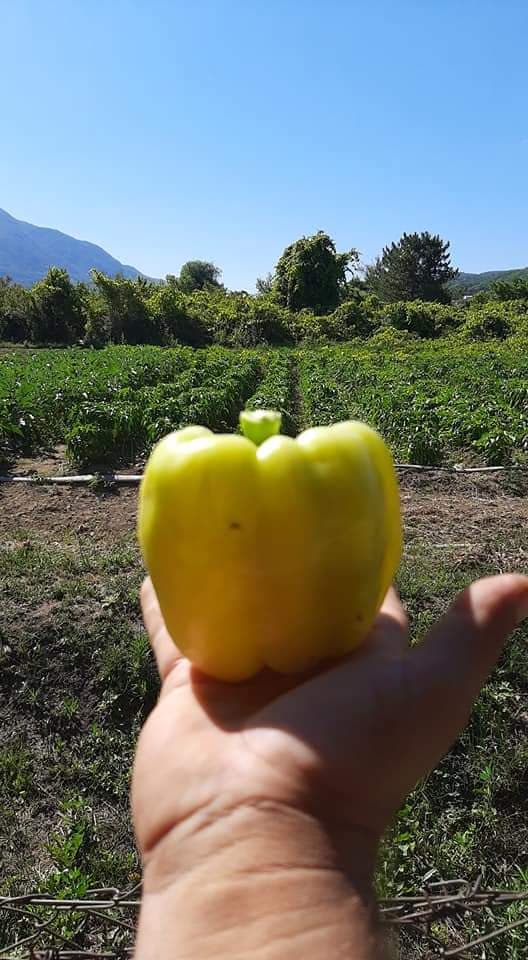
Photo: Private Archive
"Everything started completely spontaneously. I grew up in the center of Tivat, on asphalt, as someone who never had contact with the land. But, spending time in Grbalj, where I run a carpet service, I started to look at the fertile land all around me and began to think about starting a completely new business there. I started with some laying hens, as well as fattening chickens, keeping pigs. There were sows, the sows were farrowed, and little piglets were sold. Now I have an orchard and a garden on nearly three thousand square meters," explains Vladimir on how he started his business venture, which he says could not fail.
"I had no experience, except that my family was originally from Gradiška near Banja Luka, and my grandparents were engaged in agriculture and animal husbandry. Today, my uncle is engaged in cattle breeding. In principle, I have always been attracted to it. But I have never actually worked on the land or helped anyone in agriculture before."
• Today, what you are doing is almost an attraction. When we were growing up, everyone who had a backyard was engaged in cultivating the land, at least for their own needs.
"Especially in Grbalj, people were primarily engaged in agriculture and animal husbandry. I have many friends of my generation who lived from agriculture, primarily Grbalj tomatoes and Grbalj peaches. There are no such peaches today. Not just those specific ones, but none at all. In the entire Grbaljsko Polje today, I am not sure that there are a total of 500 peach trees."
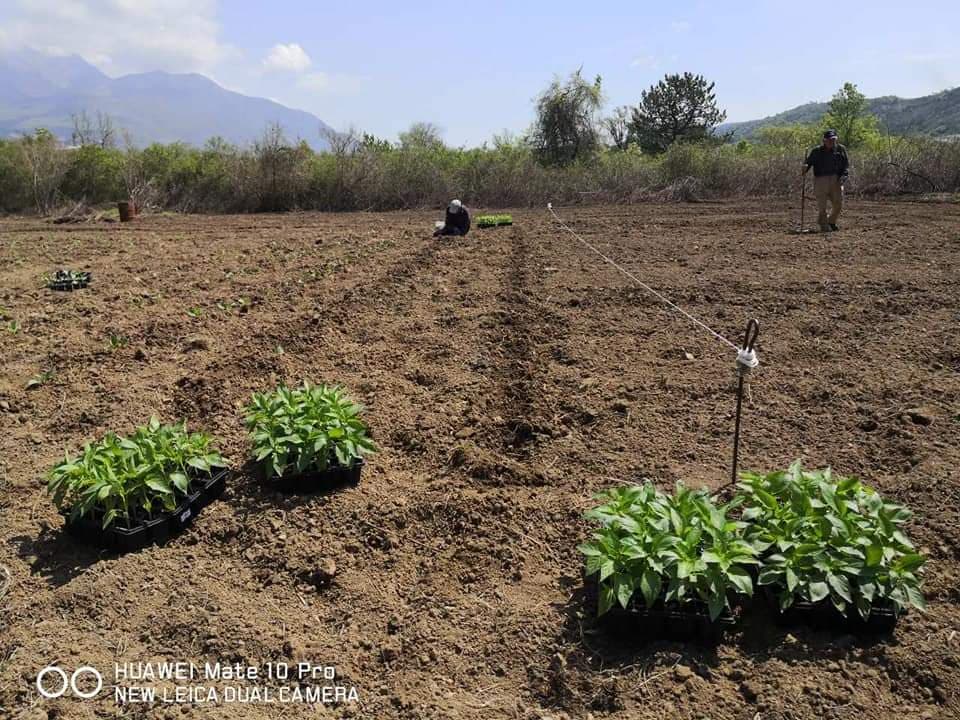
Photo: Private archive
• Considering that you spend a lot of time with people from Grbalj, have you ever commented on the reasons for the disappearances? Most of the Grbalj villages are still inhabited, people live in houses that have backyards, and they have fields that can be cultivated.
"Thirty years ago, when they were actively cultivating the land, they were children. Usually, it was difficult for them to go to the field because they would be going twice a day. Often, they would go on small motor cultivators, so the journey from Lješevići to the plot took half an hour or more. Then the whole morning watering of tomatoes, not with motor pumps that we have today, but with cans. They took water from the well, and no one then had fewer than 2000 stalks of tomatoes, plus all the other vegetables. At the time, the job was very strenuous and exhausting, especially for young people who wanted the sea and swimming rather than working in the fields. And then came the war years, and everything was devalued, and that work was no longer profitable. Until the war, agriculture was a very prosperous business.
Here is one piece of information from a man who lived off the land, who ceded the land to me for use - his mother brought home three of her father's salaries from Tivat market square on Saturdays, where she would be from seven in the morning until noon. On other days, one at a time. We are talking about the period until the beginning of the war. And then the buyers appeared, the prices dropped drastically, and everyone lost interest in that job. Import lobbies also took care of that.
The other thing is that the people who did all the work back then got older over time. The younger generations were employed by companies and only jumped out on weekends to help their parents. As the parents got older, the field was forgotten, and only the small plot around the house was cultivated for their own needs. And when the parents died, the children no longer wanted to work for their individual needs. That is why today we have the Grblajsko field, which has healed like the Amazon."
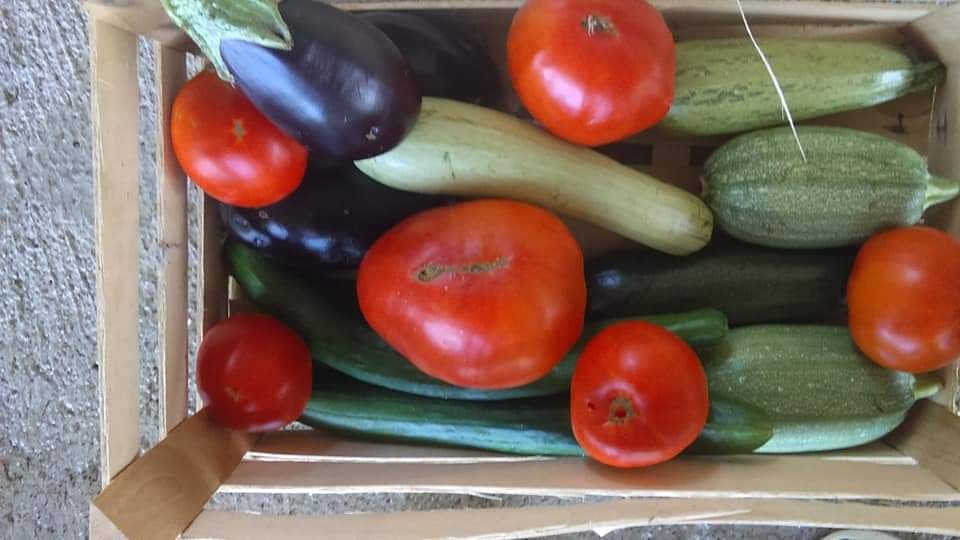
Photo: Private archive
• Today, Grbaljsko Polje is primarily an industrial zone. Still, Grbalj is big.
It is safe. Kovačko Polje can be cultivated, and Krtoljsko Polje has not been devastated in terms of construction. It has healed, but it can all be cleared. In Donji Grbalj, below the village of Kubasi, we also have a large field. There is also land in Glavatičići. It's all just a forest today.
• There is a lot of unused agricultural land, and we are all aware of that. You went into business without a single square meter in your possession. Can and should your example serve others? I ask this especially considering the current situation and the fact that already this fall, we will all be fully aware that the state of a country's economy is primarily reflected in the state of its agriculture?
"I would like to have a neighborhood that I would give my working hands to, and that would provide for me tomorrow. However, I doubt that anyone will get caught up in these things. Our people have been running away from work lately. That is what sociologists should give a definition to - what happened to our people? I have a feeling everyone has condensed. Many sold the land. But even those who haven't, and haven't been living well lately, don't want to work.
In general, we are a condensed nation. We are all too good for a hard day's work, we feel that work is dirty, beneath us. I have been running a carpet service for ten years. You can't find a worker. Some young guys come to work for a short time, but it is out of the question that a family man will accept such a job. And it's working with regular working hours, where you can't earn less than 500 euros. But you can't find a worker like that. The other thing is that everyone wants to be managers, to make millions, trillions. God forbid anyone sees you carrying a dirty carpet from someone's house."
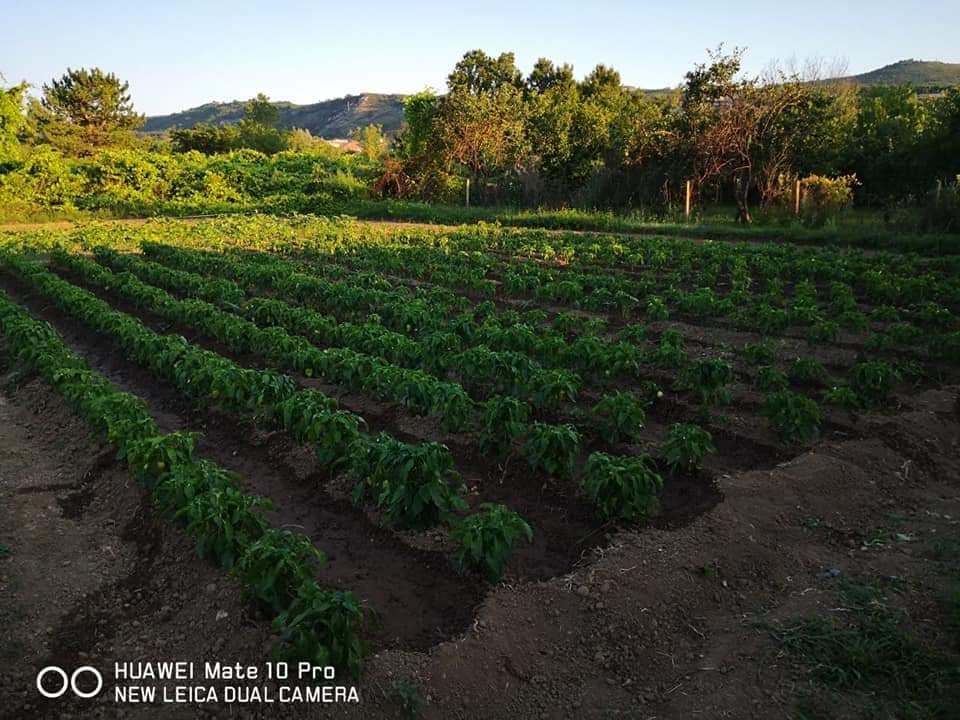
Photo: Private archive
• Nowadays, the work of farmers is much more comfortable. Still, there is work to be done. What does a typical workday look like for you?
My workday starts around seven in the morning, I feed the animals, then deal with the carpets, and around 1 pm the chickens need to be let through the orchard. In the afternoon, the animals from the pasture slowly start moving towards their pens. Then there is a new round of feeding the animals, and then the delivery of carpets."
Vladimir returns home from work around 9 pm. He returns tired, but also very satisfied, because, as he says, he lives from his job.
"I am my own boss. When I decide to, I can go and not work for a few days. Of course, this does not apply to the farm. You must always be present there. But I can close the carpet service for a few days when I need to rest. What is even more important - I know what my family eats. The food we buy in stores and markets is mostly chemically treated."
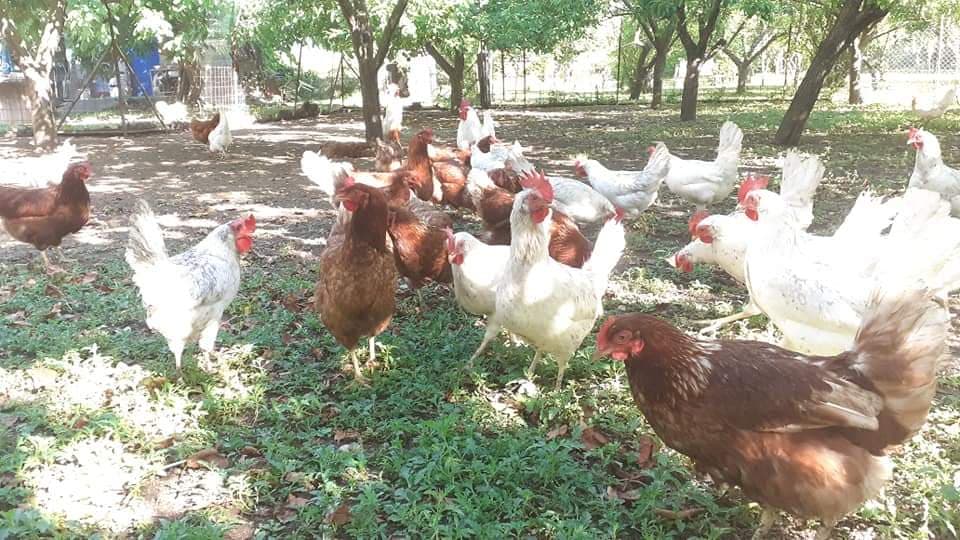
Photo: Private archive
This proud and hardworking host has opted to grow organic food.
"Out of 500 tomato plants, 200 are already unusable because flamingos attacked them. Some funds are available for organic production, but I just didn't get around to dealing with it. It will be enough for my family, " Vladimir will be satisfied, emphasizing that there are no problems with moving surplus products.
"Even if I had 10,000 square meters for growing, I would sell all my vegetables. I am in negotiations to lease another eight thousand square meters so that I can expand the orchard and be able to raise more animals. "
Fruit-wise, Vladimir currently offers pears, apples, cherries, sour cherries, figs, wild and cultivated pomegranate, peaches and nectarines, and his vegetables include the famous Grbalj tomato, but also ordinary-hybrid varieties, as well as all kinds of peppers, cucumbers, eggplants, rocket, and watermelon.
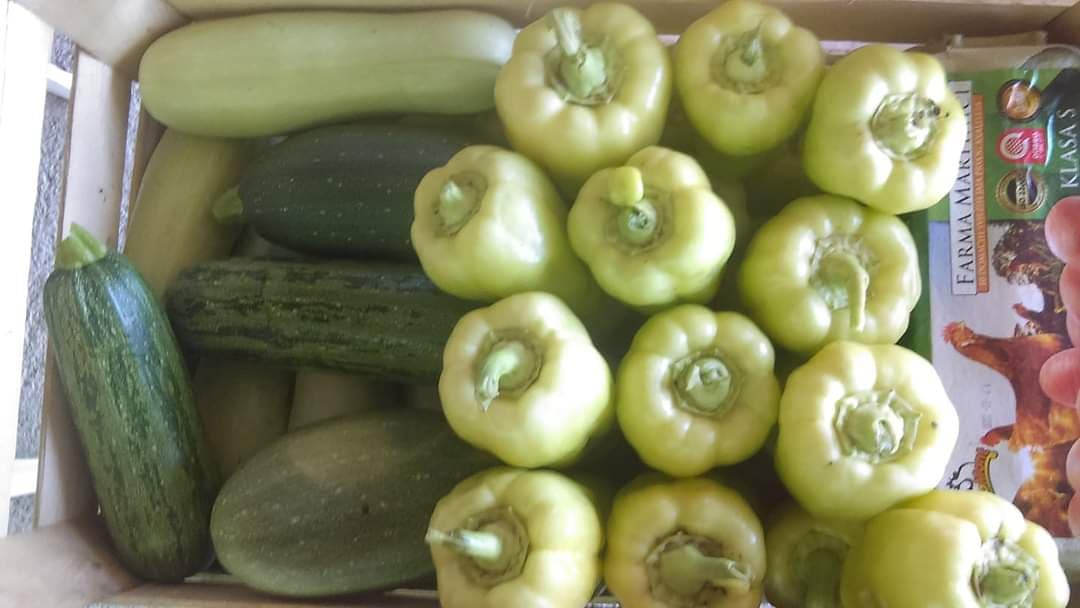
Photo: Private archive
"Producers from Zeta and Ulcinj are known for watermelons, but that is not what is offered from Grbalj, as far as sugar is concerned. Grbaljsko Polje is a gold mine that no one uses because no one wants to work, "Vladimir Španović states with sadness.
Vladimir takes care of his farm by himself, and when it is the planting or harvesting season, he hires friends who come to help him. He says that he would gladly hire someone to help him regularly, but no-one is interested, even now, when it is increasingly certain that healthy food will soon be the highest luxury for all of us.
The farm of the Španović family is currently the largest agricultural producer in Grbalj. Vladimir says this itself is a sad fact.
"Thirty years ago, every family in Grbalj did what I do, even more. Today, I am interesting as the "last Mohican", and I am not even from Grbalj. It is sad what Grbaljsko Polje looks like. I have been clearing the plot where I plant today for half a year. I was not ready to pay someone for that service, so all winter, as much as I could from other jobs, I slowly cleared the land given to me for use without any compensation."
Vladimir emphasizes that many people from Grbalj would give their agricultural properties for use, but there are no interested parties to take them on. If he could, he would model the whole Grbaljsko field, he points out excitedly.
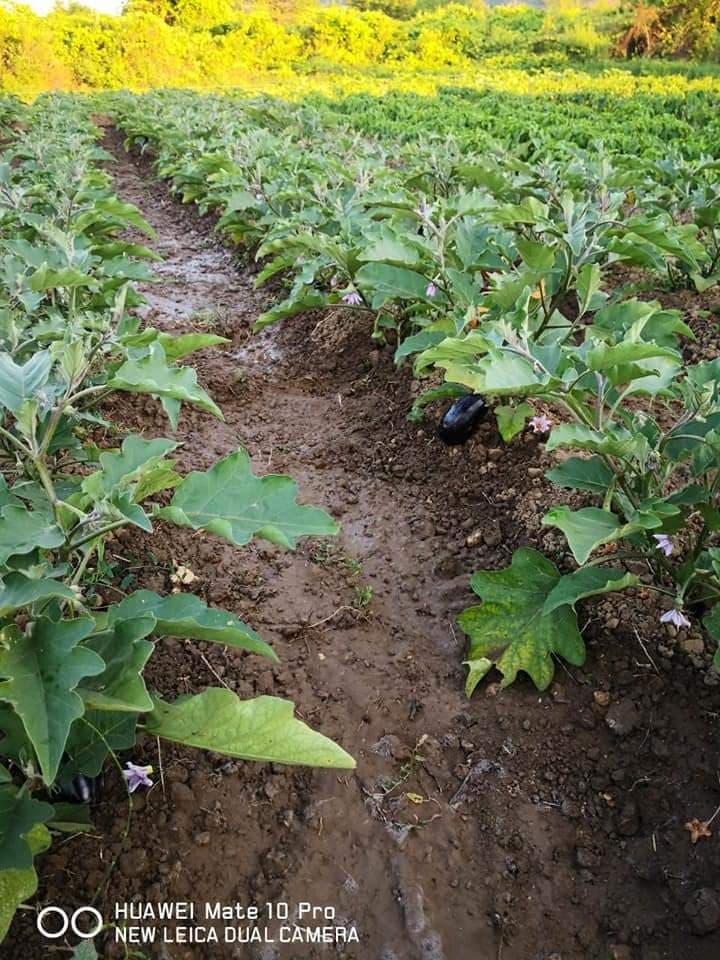
Photo: Private archive
Wanting to inspire others to follow in his footsteps, Vladimir brings us another piece of information at the end of our conversation, which, as he says, is not made up but received from a man from Grbalj who has been keeping goats all his life.
"With only ten goats, you have a guaranteed monthly salary of at least 500 euros, which means that in addition to milk, you also sell cheese and goat meat," Vladimir concludes jokingly:
"It's a challenging job. You have to graze the goats for two hours in the morning, and then again in the afternoon. While the goats graze the fresh grass, you rest in the shade with a newspaper or book. Tough work."
August 10, 2020 - A conference entitled "Festivals in Times of Crisis", held as part of the KotorArt Don Branko's Music Days, will take place tonight, starting at 8pm, on Cinema Square in Kotor.
The organizers of the festival highlight that directors of several festivals from across Montenegro and the region will speak at the conference, including Ksenija Popović (Bar Chronicle, Bar), Ana Vukotić (FIAT, Podgorica), and Ivan Radojičić (Festival of Street Musicians, Nikšić), as well as Zoran Rakočević (Korifej, Kolašin), and Dora Ruždjak Podloski, Artistic Director of the Dubrovnik Summer Festival.
A representative of the Ministry of Culture, the Head of the Directorate for Cultural and Artistic Creativity, Dragica Milić, as well as the State Secretary of the Ministry for Sustainable Development and Tourism, Damir Davidović, will also speak at the conference. The host and moderator of this conference will be the Director of KotorArt Don Branko's Music Days, pianist Prof. Ratimir Martinović.
"Speakers will present their views on the topic and this year's plans with regard to the epidemiological situation, following which there will be a debate on the position, impact, significance, place and meaning of festivals in times of crisis. The debate will unpack current and future formats, the ways in which festivals communicate with their audience, as well as defining a new, and hopefully better - normal, also in terms of the life of the festival," a statement by KotorArt Don Branko's Music Days reads.
On Tuesday 11th August, at 930pm on Cinema Square, one of the first theatre performances in Montenegro since the beginning of the pandemic is planned, in cooperation with the Dubrovnik Summer Festival.
"An original project entitled 'Mara and Kata' by Saša Božić, Curator of the drama programme within the Dubrovnik festival, is about a duo of gossipmongers who criticize everyone with their specific humour, comic statements, original language and absurd revaluation of everyday wisdom. Nataša Dangubić and Doris Šarić Kukuljica have the audience in stitches, and never fail to make a joke at their own expense," the play’s press release notes.

Dua Bulatović Nikčević to perform tomorrow (Photo: KotorArt)
On Wednesday, 12th August, also at 930pm on Cinema Square, there will be a performance by the famous Montenegrin guitar duo of Srdjan Bulatović and Darko Nikčević. The duo will, in addition to their classic, well-known repertoire, also present songs from their latest album called Peninsula.
All programmes, it is emphasized, will be held in front of a limited audience, respecting the measures of the NKT and the Institute of Public Health. The programmes are also broadcast directly online, through KotorArt's profiles and via Facebook and Youtube.
Source: RTCG
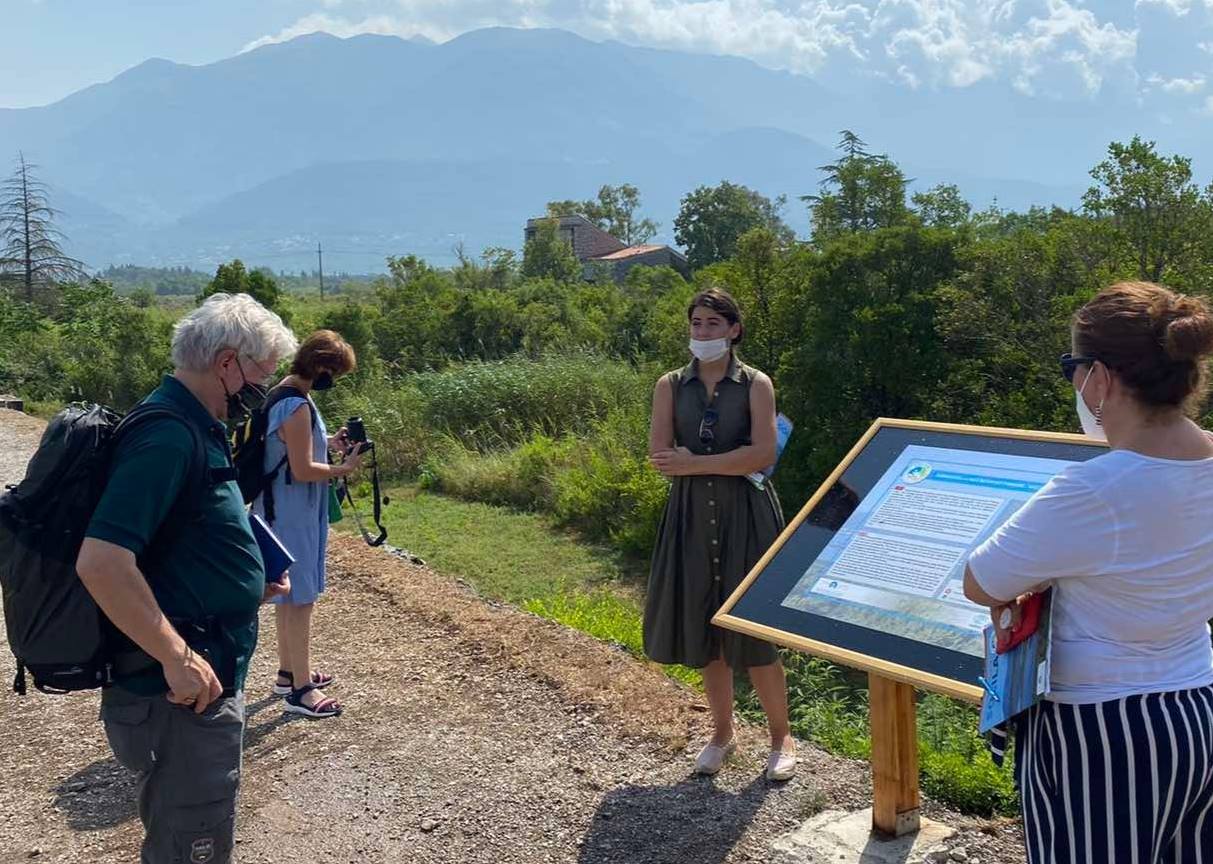
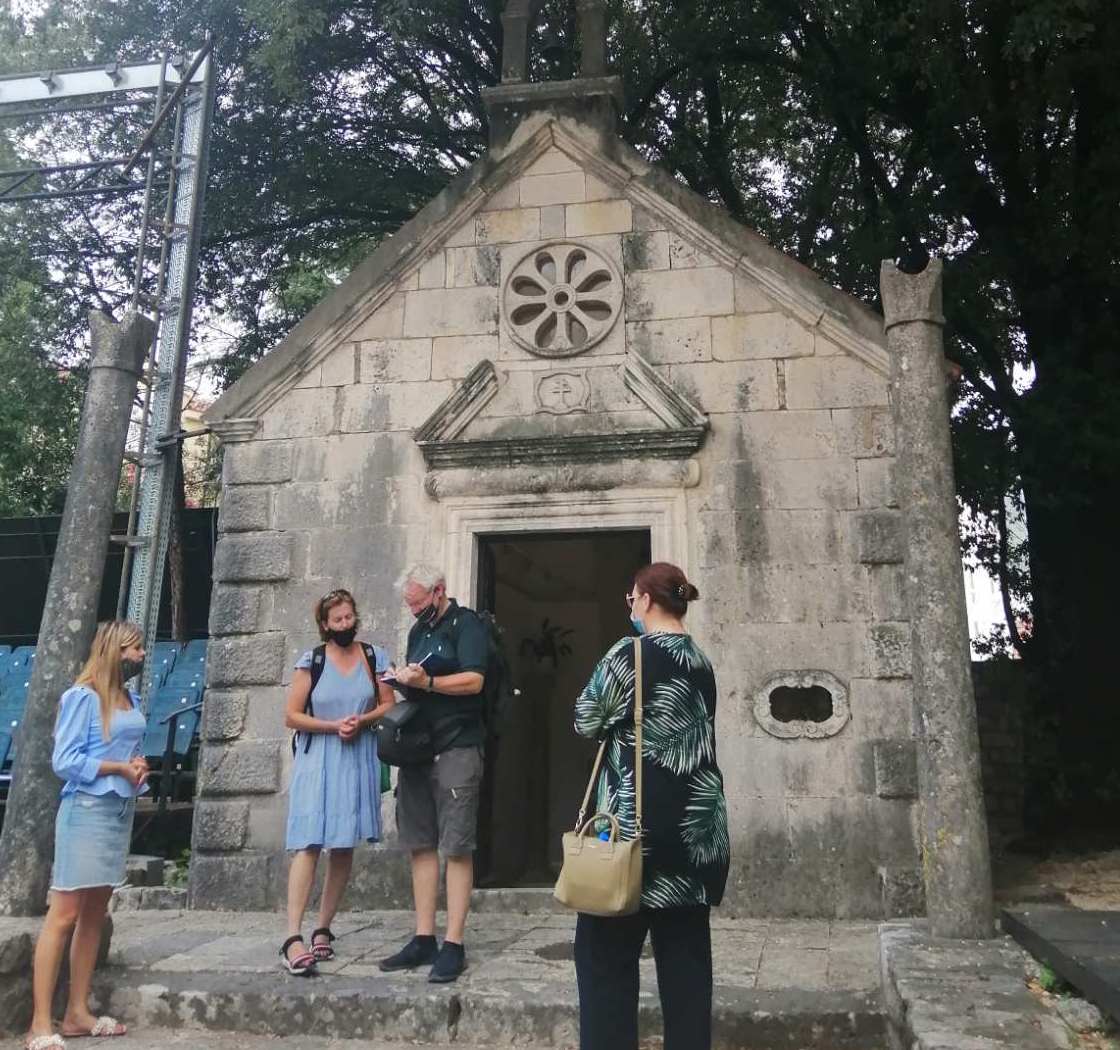
New COVID-19 positives were sent for testing from the following municipalities:
NKT: Measures to be defined for political rallies, foreign missions, beginning of the school year
August 8, 2020 - The Office for Project Management of the Municipality of Bar has presented the first tourist map of ancient olive trees in the Jidžarin grove near Stari Bar. The map has been produced for tourists who want to visit and experience the beauty of Bar olive groves.
The Municipality of Bar announced that the map was produced as part of the cross-border cooperation project Cross Border Ol, financed through the Interreg Italy-Albania-Montenegro programme.
The Head of the Project Management Office, Ana Živanović, said that those who visit the Old Town of Bar often have no idea what beauty lies within its immediate vicinity, in the olive grove.
"The basic idea was to promote the olive grove for tourism by presenting it on a map together with well-known cultural locations and other attractions in Bar, and directing visitors from those locations towards the olive route," said Živanović.
She added that she is certain the map will serve as a way for visitors to Bar to get to know the city and its natural resources better, but will also be used by travel agencies as a good starting point for creating new day trips. The route map of ancient olive trees will be a successful tool to publicize Bar as well as to promote the olive route and agro-tourism specifically.
Bar's map of ancient olive trees gives an overview of the location of olive groves, the Old Town, the remains of cultural and historical assets, stone bridges and fountains, the Kajnak spring, the Old Mill and 23 ancient olive trees, as well as providing a broader view of the centre of Bar with faithfully illustrated cultural locations and attractions.
The Municipality announced that the ancient olive trees will be marked in situ with information boards including data on the trees, their estimated age and geographical coordinates.
The route map of ancient olive trees has been distributed to the various stakeholders in the tourism economy and to cultural institutions, i.e. the Tourist Organization, the Cultural Centre, hoteliers and tourist agencies, in order to be further distributed to tourists both this and next year.
"Tourism professionals who wish to provide maps for their guests will be able to do so after the presentation, by contacting the Project Management Office," the statement concluded.
HRB
PCR testing for the new coronavirus in Montenegro is performed only in the laboratories of the Institute of Public Health (IPH)
August 7, 2020 - The Center for Civic Education (CGO-CCE) has expressed great concern over the Technical Recommendations for the Epidemiological Protection of Voters During Elections, adopted by the State Election Commission (SEC) yesterday, reports CGO-CCE program assistant, Damir Šuljević.
Technical recommendations adopted by SEC at yesterday's session - main provisions
CGO-CCE: SEC's Recommendations Unconstitutional, Unclear, Contradictory and Unenforceable
As explained by the CCE, the SEC has not passed legal provisions that enable citizens to exercise the right to vote guaranteed by the Constitution and, at the same time, ensure explicit election norms so that the election day passes with minimal epidemiological risk.
"It is devastating that the SEC worked for almost a month on a document containing only three pages of text that include many technical and spelling errors. This document remains inherently vague and, most importantly, unconstitutional. This document indicates in the title that it is a technical. However, the first part prescribes obligations, yet there are no apparent sanctions for violations, which is contrary to the letter of the law. Such a stunt makes the legal nature of this act unclear because it is not known whether they are recommendations or obligations," explains Šuljevic.
The proposed voting by post for persons in self-isolation or quarantine does not follow the provisions of the Law on Election of Councilors and Deputies and the SEC Rules on Postal Voting.
"More precisely, the specific position of persons in quarantine and self-isolation cannot be subsumed under the situations described by the law and the rules, even when under home or hospital treatment, which the SEC members presumably had in mind. Specifically, these persons are in a situation that is not given a medical diagnosis, neither do they show the presence of any disease. Still, (their situation) is a consequence of the competent state authority's decision as a measure to combat infectious diseases. Also, the planned postal voting for quarantined persons is technically tricky. The SEC Rules provide that one person may be authorized to apply for a maximum of one voter, except in the case of voters from the same household. That means that the number of people placed in quarantine requires almost or an equal amount of authorized persons to apply on their behalf, which, due to the limited contact between quarantined persons and their families, makes this idea absurd," the statement goes on to explain.
As Suljević points out, the epidemiological recommendations are also contradictory, unclear, and incomplete, and they do not respond to the generally known challenges that arice when calling elections.
"For example, it is recommended that a minimum distance of two meters be provided in front of the voter identification station. It neglects to mention that the voter must hand over the ID card to the polling station committee members, sign the excerpt from the voter list, and separate the control ballot from the ballot paper, etc. Also, it is prescribed that hand disinfection is performed before and after voting. In one paragraph of the document, it is prescribed that the voter disinfects hands after identification and then returns their mask to the face. In the second paragraph, hand disinfection is performed after the mask is replaced. Due to this unclear style, it remains very vague as to whether the voter disinfects their hands two, three, or four times at the polling station," they add.
As Šuljević mentions, these technical recommendations make it impossible for persons in quarantine outside the area of the municipality where they reside to vote. He points out that this restriction is contrary to other general acts passed by the SEC. It also brings an "unprecedented situation" of denying the right to vote guaranteed by the Constitution by technical recommendations because the Constitution prescribes the right to vote as general and equal to all citizens.
"CGO-CCE will submit to the Constitutional Court an initiative to review the constitutionality of the SEC's technical recommendations, and the latter must react promptly, bearing in mind that the election day is approaching. Also, the CCE calls on the SEC to continue work on this document and use the time until the elections to adopt constitutional, precise, and concrete instructions to enable the safe conduct of elections," the CGO-CCE statement concluded.
State Election Commission: recommendations follow the Constitution in part
Mugoša: The COVID-19 epidemic in MNE will most likely begin to subside
160 COVID-19 patients hospitalized, 19 in a life-threatening condition
Mugoša: The Institute gave recommendations for voting, but others took the decision
NKT: International traffic measures relaxed
Countries from which ENTRY into Montenegro is possible without additional restrictions regarding COVID-19:
Countries from which it is possible to come with NEGATIVE PCR or ELISA RESULTS (negative IgM) or ECLIA TEST for COVID-19:
Countries from which entry to and stay in Montenegro for Montenegrin citizens residing in Montenegro, and foreign citizens residing in Montenegro is possible, in order to determine self-isolation or quarantine measures
August 6, 2020 - The education system is being prepared for the regular beginning of the school year, which should be acceptable to both parents and students, the Ministry of Education announced, and the portal www.parents.me reports.
They will communicate with the Institute of Public Health in the coming days to receive confirmation.
The Ministry says that, given the public's expected interest, they must announce their position at the beginning of the school year. They point out that the appearance of coronavirus has clearly shown that it is not acceptable to make long-term plans and promises, which can be changed in a few days, due to objective circumstances.
"At the same time, the epidemiological situation changes day by day, and a serious education system must have a support scenario for such unforeseen situations, which are possible in the coming weeks and months," the Ministry of Education claims.
That is why they will record classes for the first quarter, "exclusively as" Plan B ", and not as an already established substitute for regular classes during August."
"Re-recording video lessons will serve as a temporary basis for the education system, so that a possible deterioration of the epidemiological situation would not find us unprepared. However, as we have already said, this basis will most likely serve only as a support to the education system and will be a useful resource for students and teachers in regular classes," the Ministry explains.
They hope that the prescribed measures will assure the improvement of the epidemiological situation and that they will receive confirmation from the competent health institutions that children, to everyone's satisfaction, can be in school in September.






